Bird Watching Tour in Langtang Valley - Amazing Experience
Nestled in the heart of Nepal's Langtang National Park near the Tibetan border, Langtang Valley is a breathtaking destination celebrated for its stunn...

The Everest Base Camp (EBC) trek is more than just a journey; it’s an adventure of a lifetime. From walking alongside the mighty Himalayas to experiencing Sherpa culture firsthand, every step on this trek is a story in itself. But how much does it cost to embark on this thrilling expedition? Let’s break it down so you can budget wisely and make your dream trek a reality.
Budgeting for your Everest Base Camp trek isn’t just about numbers—it’s about planning for an experience that will push your limits and reward you with memories of a lifetime. From permits and flights to food and accommodation, here’s what you need to consider:
Before you set foot on the trail, you need permits to enter the Everest region. These fees contribute to maintaining the trails, conserving wildlife, and supporting local communities:
Sagarmatha National Park Permit – $30
Khumbu Pasang Lhamu Permit – $20
Total: $50
The adventure starts with a thrilling flight to Lukla, one of the most exciting (and sometimes nerve-wracking) airports in the world! A round-trip flight between Kathmandu and Lukla costs between $250–$400. Be prepared for potential weather delays—it's all part of the adventure!
Hiring a guide and porter isn’t just about making your trek easier—it enhances your experience. A local guide ensures you stay safe, navigate the trails smoothly, and learn about Sherpa culture. A porter helps lighten your load so you can fully enjoy the trek.
Guide: $30–$40 per day
Porter: $20–$30 per day
For a 12-day trek, the total cost ranges from $600–$1,000. At Nature Trail, our expert Sherpa guides ensure you trek safely while sharing their deep knowledge of the region. Check out our EBC trek package here!
Trekking through the Himalayas means staying in cozy teahouses, where you’ll find warmth, hearty meals, and the company of fellow trekkers.
Teahouse stay: $5–$20 per night
Meals (Dal Bhat, momos, soups): $5–$15 per meal
Total (12 days): $300–$500
Beyond the essentials, there are extra costs that add to your comfort and safety:
Wi-Fi & Charging: $5–$10 per session
Hot Showers: $5–$10
Trekking Insurance: $100–$150
Tips for guides & porters: $100–$150
Total Estimated Cost: $1,400–$2,300
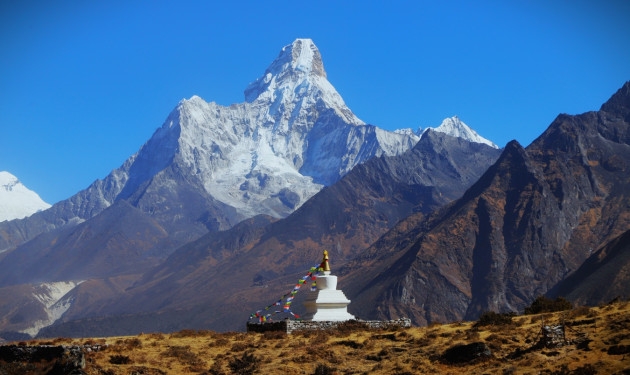
Are you ready to embark on the adventure of a lifetime? From the vibrant streets of Kathmandu to standing at the foot of the world’s highest peak, the Everest Base Camp Trek is more than just a trek—it’s a story you’ll tell for years to come. Let me take you on a journey through this unforgettable 16-day experience, where each day is filled with excitement, discovery, and breathtaking views.
Check Nature Trails EBC Package here: Everest Base Camp Trekking
Day 1: Arrival in Kathmandu
Day 2: Kathmandu Sightseeing
Day 3: Fly from Kathmandu to Lukla & Trek to Phakding
Day 4: Phakding to Namche Bazaar (3,440m)
Day 5: Rest Day at Namche Bazaar
Day 6: Namche Bazaar to Tyangboche (3,860m)
Day 7: Tyangboche to Dingboche (4,410m)
Day 8: Rest Day at Dingboche or Short Hike to Chukung (4,730m)
Day 9: Dingboche to Lobuche (4,910m)
Day 10: Lobuche to Everest Base Camp (5,364m) / Gorakshep (5,140m)
Day 11: Gorakshep to Kala Patthar (5,545m) / Pheriche (4,240m)
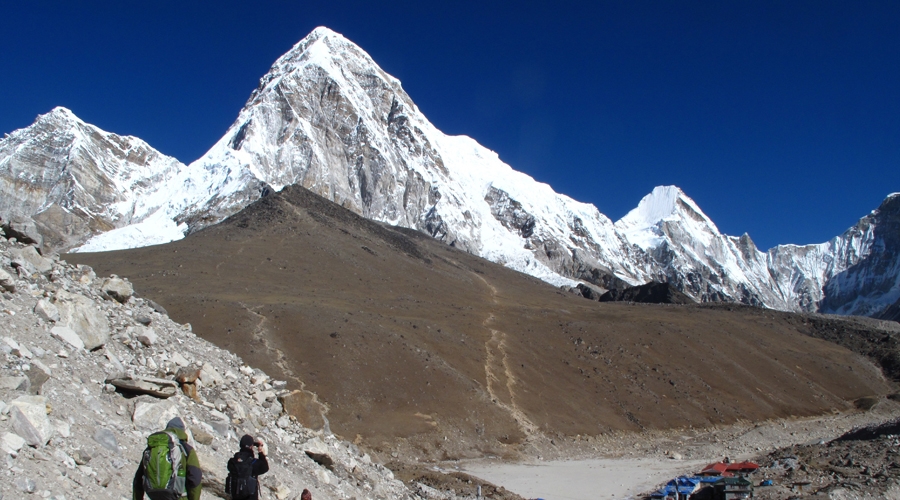
This 16-day trek isn’t just about reaching the summit—it’s about experiencing a journey through one of the most beautiful and challenging landscapes on Earth. Each day is a new adventure; by the end, you’ll carry the spirit of the Himalayas forever.
Read the detailed itinerary here: Everest Base Camp Trek
What Makes the Everest Base Camp Trek Special?
Unparalleled Views – Everest, Lhotse, Ama Dablam, and the Khumbu Glacier surround you.
Sherpa Culture – Visit monasteries, spin prayer wheels, and experience warm Himalayan hospitality.
Thrilling Adventure – Cross high-suspension bridges, hike to breathtaking viewpoints, and stand at the foot of the world’s highest mountain.
The Everest Base Camp Trek offers stunning landscapes and a chance to experience a rich culture and some of the world’s most iconic sites. Here are the major highlights that make this trek unforgettable:
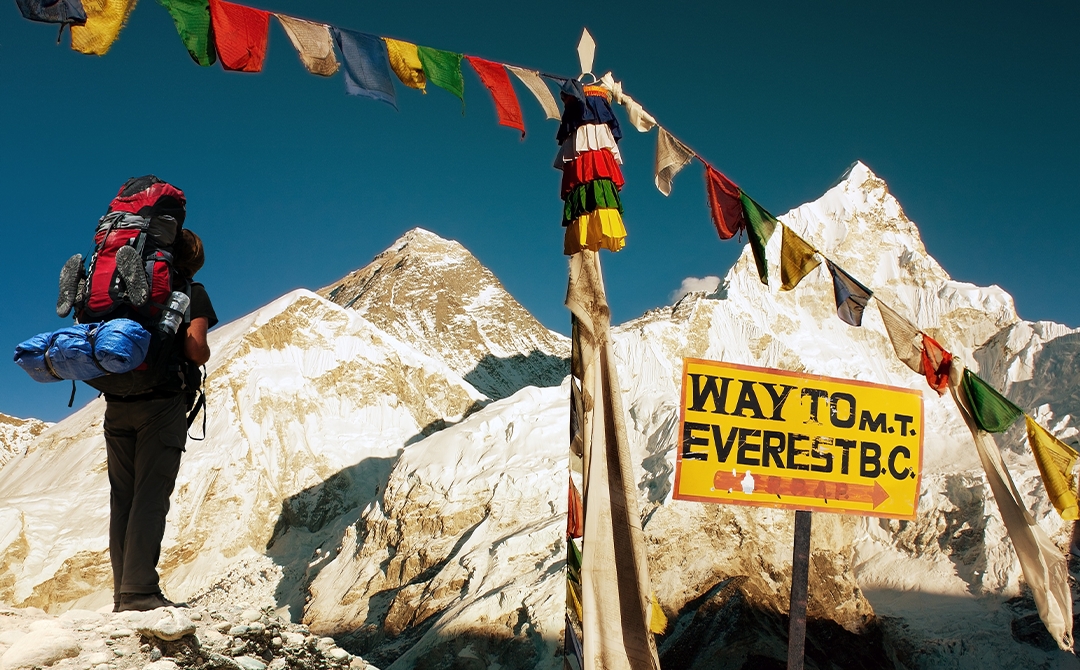
The view of Mount Everest from various points along the trek is nothing short of awe-inspiring. Particularly from Kala Patthar, where you’re treated to panoramic views of Everest and surrounding peaks like Lhotse and Nuptse.
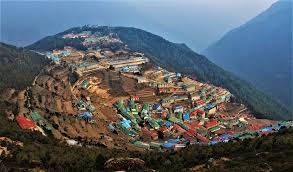
Known as the gateway to Everest, Namche Bazaar is a vibrant hub where trekkers can acclimatize, explore local markets, and interact with Sherpa communities. The town’s unique blend of Himalayan culture and modern amenities creates a fascinating atmosphere.
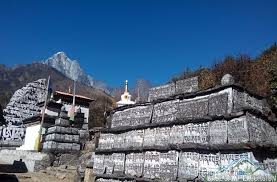
Located at 3,860 meters, Tengboche Monastery is one of the most sacred Buddhist sites in the Khumbu region. This peaceful spot offers spiritual solace while surrounded by awe-inspiring views of Everest and other peaks.
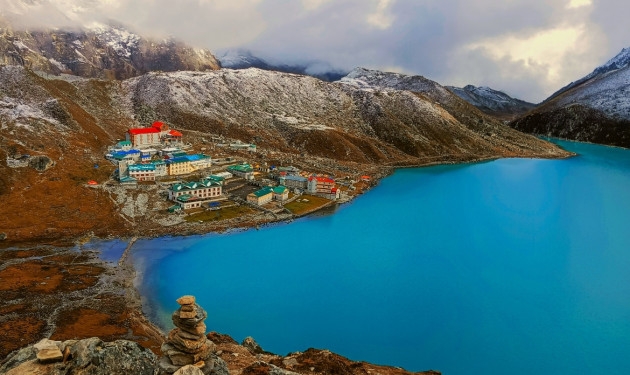
As you make your way toward Everest Base Camp, you’ll encounter the Khumbu Glacier, an immense sheet of ice that leads to the base camp. The nearby Khumbu Icefall is a striking, jagged ice formation, one of the most challenging and visually dramatic parts of climbing Everest.
A UNESCO World Heritage Site, Sagarmatha National Park is home to diverse flora and fauna and a rich cultural heritage. Trekking through this park allows you to experience the region's natural beauty, from rhododendron forests to alpine meadows.
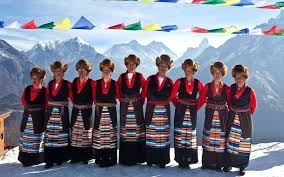
Along the route, you’ll pass through traditional Sherpa villages like Phakding and Dingboche, where you can learn about the local way of life. Visit ancient monasteries, spin prayer wheels, and interact with the Sherpa people, whose hospitality is legendary.
At Thukla Pass, a somber collection of memorials commemorates those who have lost their lives attempting to summit Everest. It’s a touching reminder of the challenges faced by mountaineers and adds a reflective element to your trek.
These attractions, along with the camaraderie of fellow trekkers and the sheer majesty of the Himalayas, create an experience that will stay with you forever.
The cost of the Everest Base Camp trek varies, but every penny spent is worth the adventure. With expert guides from Nature Trail, a well-planned itinerary, and a realistic budget, you can make this legendary trek a reality.
Ready to take on Everest Base Camp? Plan your EBC trek with Nature Trail today!
The Everest Base Camp (EBC) trek is considered a moderate to challenging trek. While no technical climbing skills are required, trekkers must be prepared for long daily walks, high altitudes, and varying weather conditions. A good level of fitness and proper acclimatization are key to a successful trek.
The best seasons for the Everest Base Camp trek are:
Spring (March to May) – Pleasant weather and blooming rhododendrons.
Autumn (September to November) – Clear skies and stable conditions.
Winter (December to February) is extremely cold, and monsoon (June to August) brings heavy rainfall, making trekking more challenging.
Yes, you need the following permits:
Sagarmatha National Park Permit – $30
Khumbu Pasang Lhamu Permit – $20
Total permit cost: $50
Yes, independent trekking is possible, but hiring a guide enhances safety, navigation, and cultural experience. A porter can also help carry your load, making the trek more enjoyable.
Guide cost: $30–$40 per dayPorter cost: $20–$30 per dayFor a 12-day trek, the total guide and porter cost ranges from $600–$1,000.
Accommodation is in teahouses, which are basic but cozy lodges. Expect twin-sharing rooms with simple bedding. Hot showers and Wi-Fi are available for an extra charge.
Teahouse stay: $5–$20 per nightMeals: $5–$15 per mealTotal food & accommodation for 12 days: $300–$500
Typical meals include dal bhat (rice and lentils), momos, soups, pasta, and porridge. Meat is available but is not recommended at higher altitudes due to storage concerns.
Acclimatize properly by taking rest days.
Stay hydrated and avoid alcohol.
Ascend gradually and listen to your body.
Consider carrying Diamox (after consulting a doctor).
The total estimated cost ranges from $1,400 to $2,300, covering permits, flights, guides, accommodation, food, insurance, and miscellaneous expenses.
Yes, travel insurance covering high-altitude trekking and emergency evacuation is strongly recommended.
Trekking insurance: $100–$150
Warm clothing (layers, insulated jackets, gloves, hat)
Sturdy trekking boots
Sleeping bag (suitable for -10°C to -20°C)
Trekking poles
First aid kit and necessary medications
Water purification tablets
Power bank and extra batteries
You can book through trekking agencies like Nature Trail, which provides expert guides, accommodation, and a well-organized itinerary.
Are you ready to embark on this incredible journey? Plan your EBC trek with Nature Trail today!


Nestled in the heart of Nepal's Langtang National Park near the Tibetan border, Langtang Valley is a breathtaking destination celebrated for its stunn...

Vipassana meditation allows you to perceive and see things in their natural sensations, recognize pure energy, and adapt to the 4 noble truths of Bud...

IntroductionRestricted Areas in Nepal are designated regions that require special permits, known as Restricted Area Permits (RAPs), to protect their n...
Discover incredible offers for your upcoming adventure by subscribing to our newsletter with the latest travel tips and updates.
